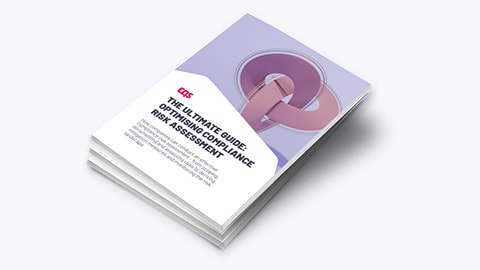Case study: Did Patisserie Valerie try to have its cake and eat it too?
A reconstruction of events and an outlook on how to avoid them.

Recently, the newspaper headlines were awash with Patisserie Holdings Plc being tied up in a scandal. Leading up to the meltdown on October 9 Patisserie Holdings was a respected and popular British bakery/confectionery company listed on the alternative AIM market.
The company had over 170 stores across the country, generating sales revenues exceeding £100 million. Over 2,700 people were employed at well-known brands such as Patisserie Valerie, Druckers Vienna Patisserie, Philpotts, Baker and Spice, and Flour Power City.

A confidential or anonymous way for employees to report the misconduct could have helped to avoid the downfall of Patisserie Valerie.
When the icing falls off: reconstructing the events at Patisserie Valerie
Let’s take a look at the incidents that lead to the downturn of the British baking empire.
Where did it start?
As early as February 2018, when the company’s shares hit new peaks, the CEO Paul May, the finance director Chris Marsh, and the non-executive director James Horler cashed in shares amounting to almost £5.9 million. In May, the company reported that the chain was performing well – despite peers such as Cote and Carluccio’s having announced closures. In June, various members of the board again sold £7.2 million worth of shares. In retrospect, it now seems as if the events were foreseeable. An article in This is Money, published in October 2018 aptly asked: “After Patisserie Valerie bosses sell £13 million shares months before scandal, why didn’t ANYONE in charge see their cakes were sinking?”.
Downfall in 3 acts: taking a look at the events in October 2018
October 10 – LSE suspends trading of Patisserie’s shares:
On October 10, the company informed the market that management had been notified of accounting irregularities that would have a significant impact on the company’s cash position. Moreover, Chris Marsh, the CFO, had been suspended from his role. The company requested that their shares be suspended from trading. Losses for the Chairman of the Supervisory Board and the largest shareholder Luke Johnson were estimated to be £100 million. Later the same day, it was announced that the company owed HRMC £1.4 million in tax.
October 11 – announcement relating to the potential bankruptcy of the company:
On October 11, the company announced that there was a material shortfall between the reported financial status and the actual financial status of the business. Without an immediate injection of capital, the directors were of the opinion it wouldn’t be possible for the company to continue.
October 12 – Chief Financial Officer:
On October 12, the Hertfordshire police issued a statement that “a 44-year-old man is arrested on charges of fraud as a result of counterfeiting company accounting.” Turns out it was the company’s finance director Chris Marsh and an investigation was launched.

Why did nobody speak up at Patisserie Valerie?
Patisserie Valerie wanted the cake and ate it too
There is a British proverb that perfectly describes the situation at Patisserie Valerie: “You can’t have your cake and eat it too”. In essence, it means that you cannot physically keep your cake and at the same time eat it, because once it is eaten, it will be gone. In order words, you shouldn’t ask for more than you deserve or is reasonable.
The chief financial director seemingly played the main role in the fraud. While the company still believed it had £24 million in the bank, it was already on the verge of bankruptcy and failed to pay a tax bill amounting around £1 million.
Regardless of whether the financial director acted alone or the entire team consciously assisted in falsifying the company’s accounts, someone else must have known. But why did nobody speak up? It’s likely that a blind eye was turned on what was really going on out of fear of being fired. A confidential or anonymous way for employees to report the misconduct could have helped to avoid the downfall of Patisserie Valerie. This example clearly shows the value effective compliance procedures can add to a company.

The AIM-listed British bakery Patisserie Holdings PLC got caught in a downward spiral that resulted in extreme financial and reputational damage.
Avoiding unethical practices: Why all companies need an independent whistleblowing channel
The fight against unethical practices and the protection of honest employees should always be in the interest of companies. Minimizing risk is crucial to maintaining investors’ confidence and the integrity of financial markets. Once lost, the confidence of investors and employees is hard to rebuild.
For this reason, companies need to have a system that enables employees to report irregularities. Many employees fear retaliation when reporting abuse within their company. To help alleviate this fear it is advisable to implement a confidential whistleblowing system that provides whistleblowers with adequate protection (total anonymity if required). Only by having effective internal systems for reporting misconduct can companies identify risk at an early stage and take action.
It is a false economy for a company not to provide a confidential whistleblowing system to their employees. The decision might save money at the beginning, however, over the longer term, losses related to financial, reputational and other damage can be significant when issues are not identified.

Dieser Leitfaden erklärt übersichtlich, wie Sie erfolgreich eine Analyse der Compliance-Risiken in Ihrem Unternehmen durchführen





